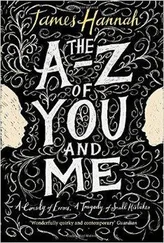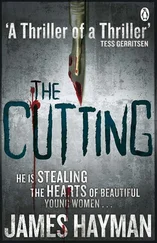The cops in the pink and orange donut shop said the police couldn’t go find Eddie’s mother right then because you had to wait.
Everybody who got somebody missing gotta wait, they told Eddie. Not just you, son.
He sat with three policemen at a table with four plastic seats, the officers looming above his thin brown limbs. Eddie swiveled in his seat, fascinated by how it swung and caught, focusing on the chair to avoid the eyes of the cops. Everything outside now had the same glossy dark about it as the inside of somebody’s eye.
You can’t always tell right away, one cop leaned over his massive coffee to say, if a person has run off for personal reasons or if something of a different nature has happened that necessitates officers of the law getting involved.
Eddie unconsciously made a face that showed he didn’t understand this principle — when somebody disappeared, didn’t you just go find her? Wasn’t it that simple?
This fellow’s convex belly kept his cop shirt taut. His mustache went down to his chin on either side, and he had a soft, genuine expression, none of which matched his starchy uniform.
Sometimes folks can’t cope, he kept explaining, and they run away from their lives on purpose because they think that their problems will go away if they take their bodies off the scene. A bad person didn’t do anything to them, he said, scrunching the space between his brows, they just hit the highway. And in the first few days, unless we find somebody who says they saw a bad guy taking the person away, there’s always a hopeful chance that the person will come back on their own recognizance, because they realize that they love everybody they left behind and that all they really needed was a little breather.
What’s recognizance ? Eddie asked.
Um, by themselves. It means you do it by yourself. Of your own accord.
Nope, another of the cops said. That’s reconnaissance. Nobody paid attention to him.
I went to look for her myself, Eddie said. Because everybody here says don’t trust the police.
The cops glanced at one another and then at Eddie.
I don’t know why anybody would say a mean thing like that, the handlebar-mustache cop said. Don’t you trust us, son?
Can I trust somebody else? Eddie asked. Is there a different police where she won’t have to use her own cord?
The officer’s chest jounced under his taut shirt as he laughed.
Already this waiting period had made Eddie skeptical enough that he decided not to get the police involved even when the time came. He would do it himself. The police, he realized, wouldn’t have the same incentive. His suspicion that they didn’t think his mother was worth finding came not from anything they said but from their general attitude of mildly amused boredom, even from the officer who sounded as if he wanted to help but couldn’t break the rules. He probably didn’t want to seem different from his partners.
That policeman scrawled Eddie’s address and Mrs. Vernon’s number on the back of a parking ticket. Eddie got up to leave, and at that point he gave the men a more detailed verbal picture of Darlene, the one he’d worked on some in his head, and they promised to stay alert and contact him as soon as the waiting period ended. A fourth cop came back from the bathroom and sat in Eddie’s chair.
Brave kid, Eddie heard one of them say as he crossed the tile floor and shoved the door open with his shoulder. He launched himself into the pink lights flooding the far reaches of the parking lot.
He determined that he would try to enter his mother’s mind, searching places she might have gone, armed with a photograph he’d uncovered in a brown album half filled with fading snapshots. The picture he had found showed both his parents grinning in front of a Christmas tree choked with tinsel, locked in the past by denim vests and blowout afros, but he thought he should let the night people see only his mother. To preserve the memory of his father, too upsetting and confusing for him to comprehend at this point, he covered the image of Nat with a piece of newspaper, careful to fold it over the back like a sleeve and tape it there so as not to damage the front.
The police, as promised, left a message on Mrs. Vernon’s answering machine a couple of days after he’d spoken to them, assuring him that an investigation was under way, but he did not return their phone call. He had already given his own investigation priority, because, he had decided, in a just world only he should be allowed to find her, by chance or by God, but since he did not see a point in refusing their help outright, he didn’t respond.
On day three he lingered at the end of class, having nodded off a few times and nearly fallen asleep. He had not eaten well — only free breakfasts and lunches in school, from which he would bring home portions for later, hidden in his book bag and under his shirt. His placement in the second row from the back had saved him from drawing the teacher’s suspicions — though so many discipline problems exploded around him daily that Mr. Arceneaux wouldn’t have noticed anyway. The realization that nobody cared was both liberating and frightening — he could fail that class and other classes, drop out of school, and graduate to hanging out and drinking Dixie beer while sitting on milk crates and playing dominoes in front of boarded-up houses without anyone even raising an eyebrow. He could disappear or die and it would take weeks or years for anybody to realize what had happened.
As he swiveled his eyes through the room, drowsy and dizzy, he understood for the first time that his classmates didn’t count for any more than he did. It didn’t matter if they never acknowledged the shadow of worthlessness above them, poised to crush them like Godzilla’s foot. There wasn’t much they could do to resist that. Few things could save him, as he saw it. School might save him, at least that’s what everybody said, but school went down like medicine. Sports could, or becoming a singer or a rapper, but he wasn’t musical. But with school he thought the odds might improve. He had a sudden sharp mental picture of his dead father crossing the concrete playground and crunching through the grass and leaves outside to peer into the classroom and monitor his progress, his grayish face troubled and stern. Eddie didn’t pretend it had actually happened, but the what-if got to him. He sat up and forced himself to pay attention, stealing a nervous glance out the window every so often but seeing only birds.
Eddie feared that Darlene might be dead, but in the abstract that didn’t seem as bad to him as the idea that she had abandoned him on her own cord. He thought that he would prefer to find her dead than find her alive and have to endure a face-to-face rejection, possibly amplified by the addition of Some Man. Some Man he thought of as a brutish, stocky guy weighted down with gold-plated necklaces, cursed with an overhanging brow, a throaty growl, and a habit of challenging people to punch him in the gut. A foolishly proud James Brown — type with tattooed forearms and a Jheri curl who drove a white Cadillac edged with rust. In Eddie’s mind, this aggressive dude differed little from Mr. T; maybe that had something to do with the increased TV watching that came with having the house to himself. Perhaps Some Man would be his mother’s pimp, though he didn’t know that she had one, let alone if she had actually sold her body. He hadn’t seen her take any money or do anything. Still, Eddie dreaded the appearance of a flashy dresser with an iron fist who would confirm his mother’s status and imprison him with vicious, irrational rules. Any potential attachment of Darlene’s terrified him; anybody coming between them could only widen their rapidly expanding separation.
Читать дальше












